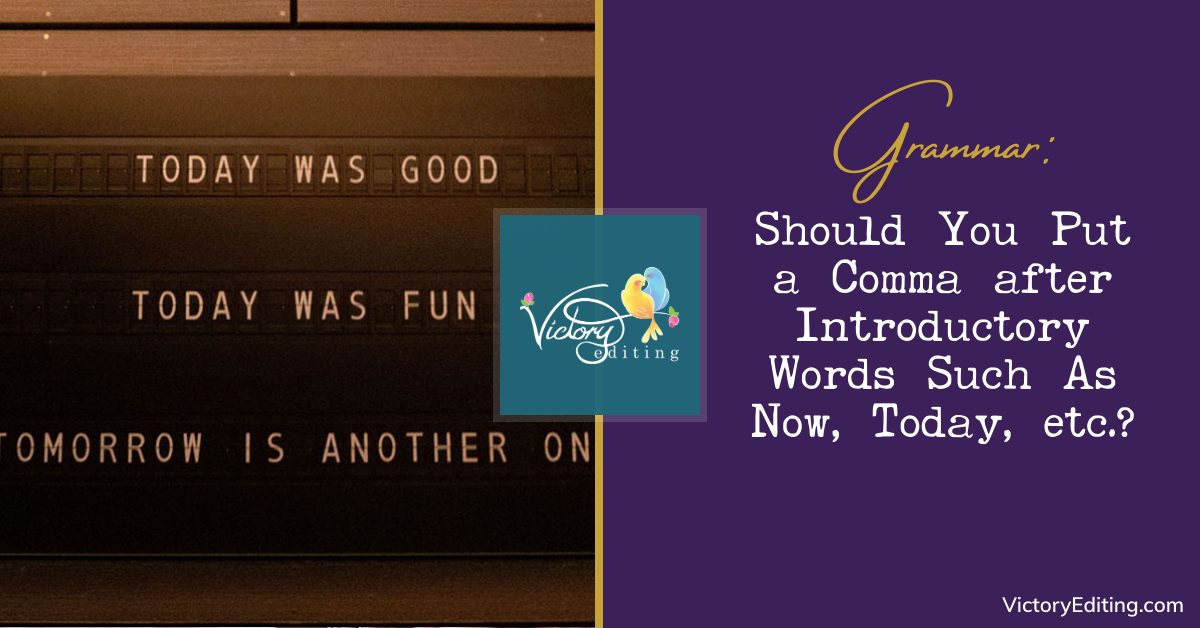Introductory Adverbs:
So, should you put a comma after introductory words such as now, today, etc.?
It depends! Wait—not what you wanted to hear? Sorry. Okay, let me try to break it down. 🙂
If you have an introductory word (or two) that is being used as an adverb (usually answers the question of when, where, why, or to what degree), then no comma. If it’s being used as a discourse marker, then go ahead and use a comma.
Here are a couple of examples:
“Someday, I’d like to go on a cruise.” — This is incorrect. Someday is functioning as an adverbial phrase, answering the question of WHEN I would like to go on a cruise.
Correct would be this:
“Someday I’d like to go on a cruise.”
Other correct examples:
Tomorrow I’m going to get my hair done.
Yesterday I paid the car note.
Next week is finals week.
The word now when it’s being used as a discourse marker
The word now is interesting. It’s often used as what’s known as a discourse marker. Those are words or phrases such as well, okay, and the like when they’re being used to organize one’s thoughts while speaking. When you use now in that way, you want to set it off with commas.
Here’s the word now used as both an adverb (first example) and a discourse marker (second example):
Now I need to pull my pie out of the oven. —Note that this answers the question of when, so it’s functioning as an adverb.
Now, I know it’s a bad idea, but I’m going to do it anyway.—Here it’s functioning as a discourse marker and doesn’t really add meaning to the sentence.
As always, hope this helps, and feel free to discuss or ask me if you have questions!
Photo by Nick Fewings on Unsplash
Hi! I’m in the process of putting together a grammar class. You can click below to see what classes are coming down the pike and to sign up to be notified when they launch. I can’t wait to see you there!



[…] is what the site […]
[…] “today,” “sometimes,” “yesterday,” and so on. Today, I found a website that disagrees, it […]
[…] this website, I found the following […]